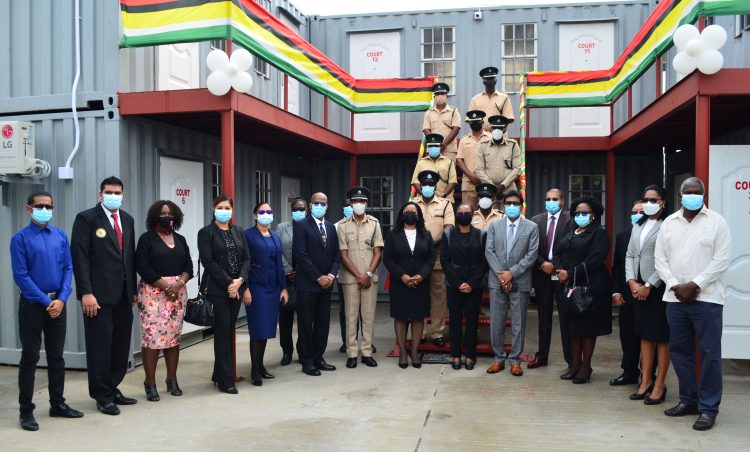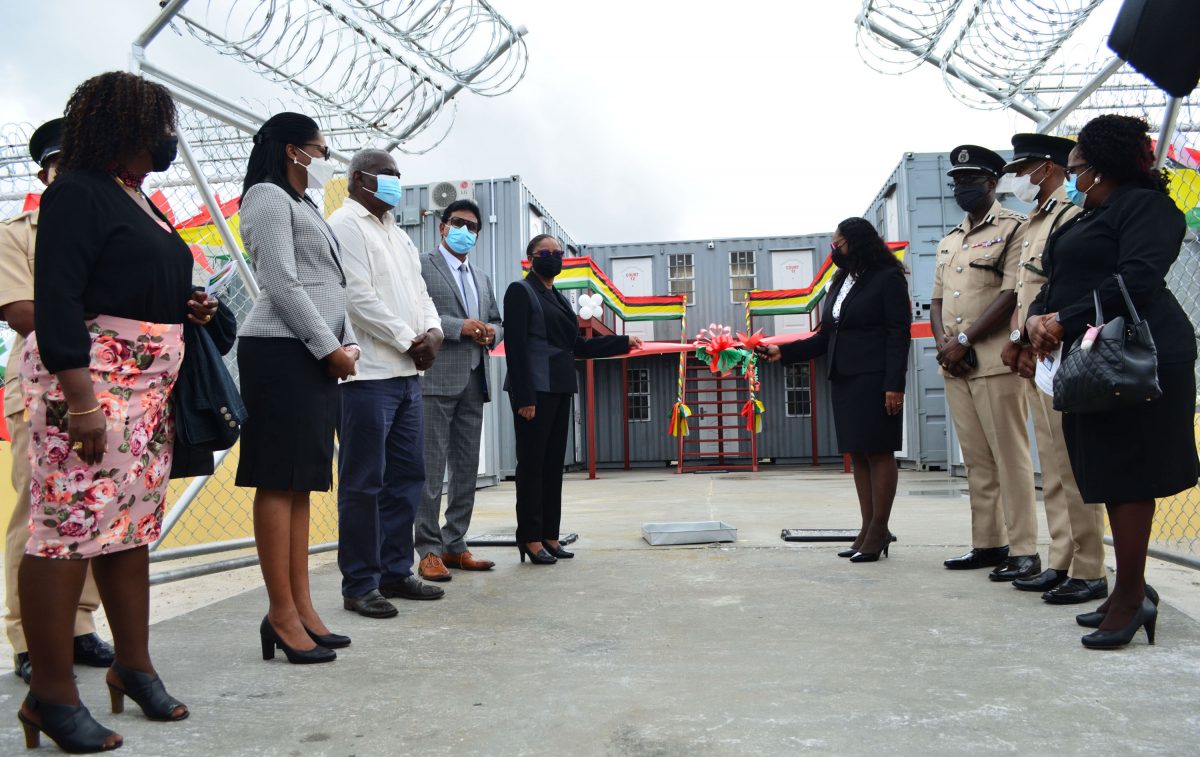Container courts that are intended to ensure continued and wider access to justice across Guyana were launched at the Lusignan Prison yesterday.
The container courts are equipped to facilitate access by inmates to virtual courtroom hearings.
At a brief launch ceremony at the prison, acting Chancellor Justice Yonette Cummings-Edwards noted that due to the novel coronavirus pandemic, many prisoners had lost hope as to when their matters would be heard in the courts. But, she said, the judiciary, took it upon itself to put initiatives in place to carry out its work. The Chancellor, while acknowledging shortcomings, said that a collaborative effort was made to equip the prisons for hearings. The magistrates’ courts were opened and although there was a limit to in-person hearings, they were able to meet the needs as far as possible of the prison population.

Justice Cummings-Edwards said that in addition to the change in the way that matters are heard, policies were revisited as it concerns imprisonment for minor offences and where persons couldn’t meet the required bail amount, the bail was either reduced or self-bail was enforced.
“Today’s event is going to put us on a higher level, which we can make a difference—a level which we can make an impact in the justice system because the virtual or better known container courts will ensure that justice is not only done but justice manifestly appears to be done. It will show that we have risen to the challenge of the pandemic,” she remarked.
The Chancellor said that the facilities would see 33 additional courts at prisons. She said that 14 are at the Lusignan Prison, eight at the New Amsterdam Prison, three at the Mazaruni Prison and four each at the Timehri and Camp Street prisons. The courtrooms have seats and a widescreen for inmates to see the other courtrooms during hearings.
Also speaking at the launch was acting Chief Justice Roxane George-Wiltshire, who noted that the initiative was born out of a challenge to ensure continued access to justice in the context of the ongoing COVID-19 pandemic.
She said that plans for the containers to be utilised for courts were made about ten weeks ago. She further noted that fruitful discussions between the Judiciary, the Guyana Police Force, the Guyana Prison Service and the National Data Management Authority resulted in the building and equipping of the courts.
She thanked the persons involved in the planning and implementation for the courts, including the Director of Prisons Gladwin Samuels, the Managing Director of E-Networks Vishok Persaud, the contractor Mahendra Boodhoo, the Information Technology Department of the Supreme Court, including systems administrator Sacharam Ramnarine and systems support officers Nickel Zeffer and Mr. Shivnarine, for aiding with the provision of quality equipment that will facilitate the technological requirement of virtual connectivity between physical courtrooms and the container annexes.
Justice George-Wiltshire also thanked the Judiciary of Trinidad and Tobago for the support and advice received on how to go about with the initiative. She said that the islands pioneered the use of containers as courts in the region prior to the pandemic.
Addressing some of the benefits of these courts, Justice George-Wiltshire was confident that the technology would “bring justice to the people,” thereby allowing access to justice to be more readily available throughout our small but large nation. “I respectfully suggest that we continue this way by providing community hubs from where defendants can attend court and witnesses can testify virtually without having to overcome challenges of internet connectivity and accessibility,” she added.
She also said that the container courts will reduce the cost of transport of prisoners and aid in the efforts in getting witnesses to attend court because they will be easier to access for persons in rural communities who usually have to travel for hearings.
The judge also mentioned that hubs have been created at some police stations and these will have to be expanded for an even greater access to justice.
Minister of Home Affairs Robeson Benn also spoke at the launch and he said that the initiative is important to make up for the time lost.






